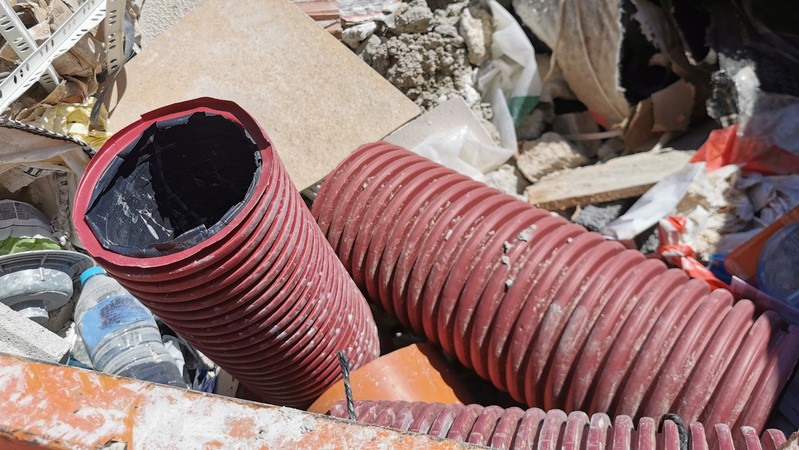This is not a paywall. Registration allows us to enhance your experience across Construction Management and ensure we deliver you quality editorial content.
Registering also means you can manage your own CPDs, comments, newsletter sign-ups and privacy settings.
Although those convicted of illegally exporting waste face an unlimited fine and a two-year jail sentence, the EA told construction firms that they too could face enforcement action.
Malcolm Lythgo, head of waste regulation at the Environment Agency, said: “We are seeing a marked increase in the number of highly contaminated plastic film and wrap shipments from the construction and demolition industry being stopped by our officers.
“I would strongly urge businesses to observe their legal responsibility to ensure waste is processed appropriately, so we can protect human health and the environment now and for future generations. It’s not enough just to give your waste to someone else – even a registered carrier. You need to know where your waste will ultimately end up to know it’s been handled properly.
“We want to work constructively with those in the construction and waste sectors so they can operate compliantly, but we will not hesitate to clamp down on those who show disregard for the environment and the law.”
Steps to ensure construction and demolition waste is handled legally:
1. Construction businesses should check what’s in their waste
- Different waste types need different treatments and so must be correctly categorised to ensure it goes to a site that is authorised to handle it safely. Businesses can also check if their waste is hazardous as different rules might apply.
- If you are removing the waste yourself, you must be a registered waste carrier. Registration can be carried out here. When a waste collector is transporting your site waste, you must check they have a waste carrier’s licence from the EA.
- You must also check that the end destination site any waste is taken to is permitted to accept it and has the right authorisations in place. Keep a record of any waste that leaves your site by completing a waste transfer note or a consignment note for hazardous waste which record what and how much waste you have handed over and where it is going.
2. Waste management industry must adhere to export controls
- Contaminated C&D waste plastic – including low-density polyethylene (LDPE) wrap and film – must be exported with prior consent from the EA as well as competent authorities in transit and destination countries.
- Those involved in the export of such waste must ensure that it meets the requirements set under the relevant export controls, such as being almost free from contamination; the destination sites are appropriately licensed to receive and treat the waste; and waste is correctly managed once received.











